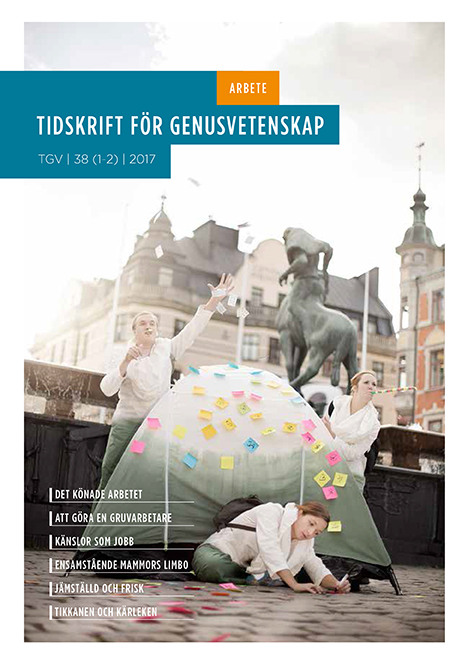Begreppet arbete
En betraktelse över dess könade karaktär
DOI:
https://doi.org/10.55870/tgv.v38i1-2.2950Nyckelord:
arbete, omsorg, kön, genus, historia, jämställdhetAbstract
Since industrialization paid work has been associated with men. When the labour movement struggled for regulated work time at the beginning of the 20th century it was in reality male labourers working conditions that were at the centre of debate. The demand for “eight hour work day, eight hours leisure and eight hours rest” was an explicit demand, built on an already established gender order; him in paid work and her with responsibility for unpaid reproductive work. This view continues to characterise both the labour market and gender equality policy where a shared responsibility for home and family remains a prioritized goal. The purpose of the article is to from a historical perspective, highlight power relations that underpin the manner in which work, and specifically paid work is conceptualised and consequences of these conceptualisations for women and men from a gender perspective. A review of various attempts to include women’s unpaid work in the home and family, shows that a simple, non-reflexive acceptance of an established work concept risks running into a blind alley where unpaid work is re-evaluated but without possibilities to affect either power relations between paid and unpaid work nor gender relationships between men and women. Our conclusion is that today’s society with emphasis on work-life balance or life puzzle reinforces the gender division of labor and power relations between paid and unpaid labour and tends to reduce gender equality to an individual problem where those with financial resources can buy themselves free from undesired work, while others must rely on State equal opportunity policies but only as long as they do not challenge established assumptions about the way work is defined or conceptualized.
Nedladdningar
Downloads
Publicerad
Referera så här
Nummer
Sektion
Licens
Författaren/författarna behåller copyright till verket.





